 W
WHugh Arnold was an English stained glass artist. Arnold was educated at the Slade School of Fine Art before attending the London County Council (LCC) Central School of Arts and Crafts where he studied under Christopher Whall from 1989 to 1903. He designed stained glass windows for James Powell & Sons and also did some independent work. While an officer in the Northumberland Fusiliers, Arnold died on active service at Gallipoli in 1915.
 W
WColin Ronald Michael Atkinson was an English first-class cricketer, schoolmaster and the headmaster of Millfield School.
 W
WAir Commodore Ian Malcolm Bonham-Carter CB, OBE, RAF was a senior officer in the Royal Air Force from the Bonham-Carter family.
 W
WMajor Robert Henry Cain VC TD was a Manx recipient of the Victoria Cross, the highest award for gallantry in the face of the enemy that can be awarded to British and Commonwealth forces.
 W
WTufton Victor Hamilton Beamish, Baron Chelwood was a British Army officer, Conservative Party Member of Parliament for Lewes (1945–1974), and author.
 W
WGeneral Sir Charles Colville was a British Army officer who served during the Napoleonic Wars. He was an ensign in 1781. He served in the West Indies from 1791 to 1797 and while serving there was promoted to lieutenant-colonel (1796). He helped to suppress the Irish Rebellion of 1798. He was in Egypt in 1801 and fought at Martinique in 1809. He commanded brigade, and afterwards division, in the Peninsular War from 1810 until 1814. During the Waterloo Campaign of 1815 he commanded a division in Belgium and the same year was made a K.C.B.. In 1819 he was promoted to lieutenant-general and served as commander-in-chief at Bombay from 1819 until 1825. He was governor of Mauritius from 1828 until 1834. He was promoted to general in 1837.
 W
WSir John Cope (1688–1760) was a British soldier, and Whig Member of Parliament, representing three separate constituencies between 1722 and 1741. He is chiefly remembered for his defeat at Prestonpans, the first significant battle of the Jacobite rising of 1745.
 W
WBrigadier Eric Edward "Chink" Dorman-Smith, who later changed his name to Eric Edward Dorman O'Gowan, was an Irish officer whose career in the British Army began in the First World War and closed at the end of the Second World War. In the 1950s, Dorman-Smith became an officer in the Irish Republican Army (IRA).
 W
WCharles FitzRoy-Scudamore was a British politician who sat in the House of Commons for 49 years from 1733 to 1782.
 W
WMajor Stanley Smyth Flower FLS FZS was an English army officer, science advisor, administrator, zoologist and conservationist.
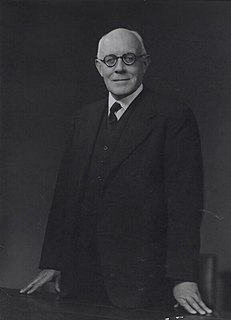 W
WAuckland Campbell Geddes, 1st Baron Geddes, was a British academic, soldier, politician and diplomat. He was a member of David Lloyd George's coalition government during the First World War and also served as Ambassador to the United States.
 W
WSir Victor Gollancz was a British publisher and humanitarian.
 W
WMajor-General Thomas Handasyd, also spelt Handasyde, was an English soldier from Northumberland who served in the armies of William III and Queen Anne from 1674 to 1710. He was military commander and Governor of Jamaica from 1702 to 1711.
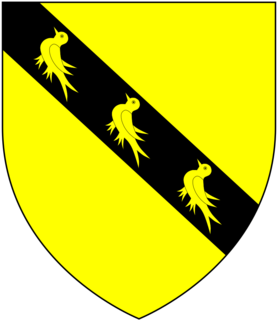 W
WLieutenant-Colonel William Harding of Upcott in the parish of Pilton in Devon, was a British antiquary, geologist and army officer. He was a Fellow of the Geological Society and after his retirement from the Army was an active member of the Exeter Diocesan Architectural and Archaeological Society. He is known for his History of Tiverton published in 1845 and 1847.
 W
WJohn Granville Harkness, J.P. was a major-general in the British Army during the Victorian era.
 W
WGeorge Harris, 1st Baron Harris GCB was a British soldier.
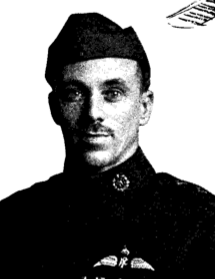 W
WCaptain John Herbert Hedley was a World War I British flying ace credited with eleven aerial victories. The observer ace claimed to have survived a bizarre flying mishap which earned him the moniker "The Luckiest Man Alive." Hedley also survived uninjured after his plane was shot down in 1918, and he became a prisoner of war. After his immigration to the United States in 1920, he became a regular on the lecture circuit, enthralling American audiences with the stories of his military service.
 W
WMajor General William Norman Herbert was a senior British Army officer who served as colonel of the Northumberland Fusiliers and commanded the 23rd (Northumbrian) Division in the Battle of France during the Second World War.
 W
WRobert Howard "Robin" Hodgkin was an English historian of modern history at Queen's College at the University of Oxford, who served as its provost from 1937 until 1946. In 1900, he was named a Lecturer of modern history at the college, and from 1928 to 1934 was a University Lecturer in that subject. His seminal work, A History of the Anglo-Saxons, was published in 1935, and in his retirement he published Six Centuries of an Oxford College: A History of the Queen's College, 1340–1940.
 W
WField Marshal Studholme Hodgson was a British Army officer who served during the 18th century. After serving as an Aide-de-Camp to the Duke of Cumberland at the Battle of Fontenoy during the War of the Austrian Succession and at the Battle of Culloden during the Jacobite Rebellion, he became correspondent to William Barrington, the Secretary at War, during the French and Indian War. He went on to command the British expedition which captured Belle Île in June 1761 during the Seven Years' War so enabling the British Government to use the island as a bargaining piece during the negotiations leading up to the Treaty of Paris in 1763.
 W
WJames Joseph Bernard Jackman VC, was an Irish posthumous recipient of the Victoria Cross, the highest and most prestigious award for gallantry in the face of an enemy that can be awarded to British and Commonwealth forces.
 W
WCaptain Edward John Eliot was an English soldier.
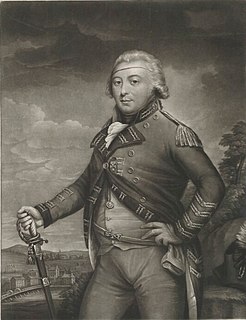 W
WMajor-General Sir Henry Johnson, 1st Baronet, was an Anglo-Irish general in the British Army.
 W
WJames Bulmer Johnson VC was an English recipient of the Victoria Cross, the highest and most prestigious award for gallantry in the face of the enemy that can be awarded to British and Commonwealth forces.
 W
WWhitshed Keene was an Irish soldier in the British Army and a politician who sat in the House of Commons for 50 years between 1768 and 1818.
 W
WHector Lachlan Stewart MacLean, VC was a Scottish recipient of the Victoria Cross, the highest and most prestigious award for gallantry in the face of the enemy that can be awarded to British and Commonwealth forces.
 W
WJohn "Jack" McManners (1916–2006) was a British clergyman and historian of religion who specialized in the history of the church and other aspects of religious life in 18th-century France. He was Regius Professor of Ecclesiastical History at the University of Oxford from 1972 to 1984. He also served as Fellow and Chaplain of All Souls College, Oxford, from 1964 to 2001.
 W
WGeneral Sir William Medows KB was an Englishman and a general in the British Army. He entered the army in 1756 and saw action in North America, the Cape, and India. In 1788 he was appointed Governor of Bombay, transferring to become Governor of Madras in 1790.
 W
WLieutenant-General Sir (George) Bryan Milman was a British Army officer who served as colonel of the Northumberland Fusiliers.
 W
WHenry Oscar Murton, Baron Murton of Lindisfarne was a British Conservative Party politician.
 W
WLieutenant General Hugh Percy, 2nd Duke of Northumberland was an officer in the British army and later a British peer. He participated in the Battles of Lexington and Concord and the Battle of Long Island during the American War of Independence, but resigned his command in 1777 due to disagreements with his superior, General William Howe.
 W
WGeorge Simpson Drynan Pattullo was a Scottish football player and manager active primarily in Spain.
 W
WMajor-General Thomas David Pilcher, CB was a British Army officer, who commanded a mounted infantry unit in the Second Boer War and the 17th (Northern) Division during the First World War, before being removed from command in disgrace during the Battle of the Somme.
 W
WGeneral Sir William Platt was a senior officer of the British Army during both World War I and World War II.
 W
WAir Chief Marshal Sir James Milne Robb, was a senior Royal Air Force commander. After early service in the First World War with the Northumberland Fusiliers, Robb joined the Royal Flying Corps and became a flying ace credited with seven aerial victories. He was granted a permanent commission in the Royal Air Force in 1919 and commanded No. 30 Squadron RAF in the Iraqi revolt against the British. In 1939, Robb travelled to Canada to help establish the Empire Air Training Scheme, a massive training program that provided the Royal Air Force with trained aircrew from Canada, Australia, New Zealand and Southern Rhodesia. He commanded No. 2 Group RAF of RAF Bomber Command and No. 15 Group RAF of RAF Coastal Command.
 W
WJohn Ruddock was a Peruvian-born British film and television actor.
 W
WAir Chief Marshal Sir Arthur Penrose Martyn Sanders, was a Royal Flying Corps pilot during the First World War and a senior Royal Air Force commander during the Second World War and the immediate post-war years.
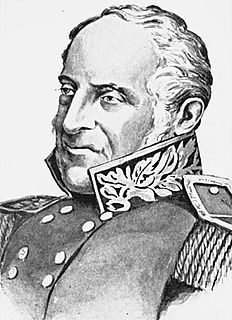 W
WGeneral Sir Roger Hale Sheaffe, 1st Baronet was a Loyalist General in the British Army during the War of 1812. He was created a Baronet in 1813 and afterwards served as Commander and acting Lieutenant Governor of Upper Canada. There is conflicting information to statements regarding his military accomplishments (1812) in the "Letters of Veritas" in and around page 50.
 W
WMajor General (Thomas) Herbert Shoubridge CB, CMG, DSO was a British Army officer who became Commandant of the Royal Military College, Sandhurst.
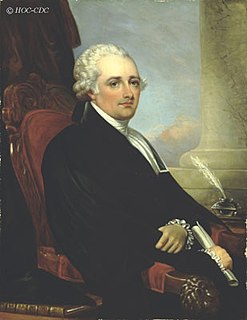 W
WSir David William Smith, 1st Baronet was a soldier and political figure in Upper Canada.
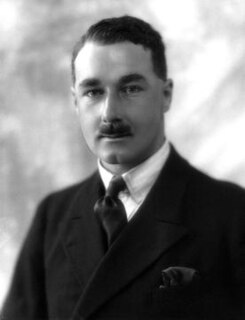 W
WMajor General Lechmere Cay Thomas, was a senior British Army officer who fought in both the First and Second World Wars.
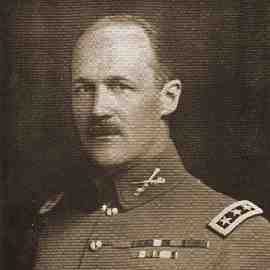 W
WIvor Thord-Gray was a Swedish-born adventurer, sailor, prison guard, soldier, government official, police officer, rubber plantation owner, ethnologist, linguist, investor, and author. He participated in thirteen wars spanning the continents of Africa, Asia, North America, and Europe.
 W
WGeneral Sir John Ormsby Vandeleur was a British Army officer who fought in the French Revolutionary and Napoleonic wars.
 W
WWilliam John Montagu Watson-Armstrong, 2nd Baron Armstrong was a British and Canadian aristocrat and soldier.
 W
WOswald Eric Wreford-Brown was an English cricketer and footballer.
 W
WJohn Scott Youll VC was a British recipient of the Victoria Cross, the highest and most prestigious award for gallantry in the face of the enemy that can be awarded to British and Commonwealth forces.